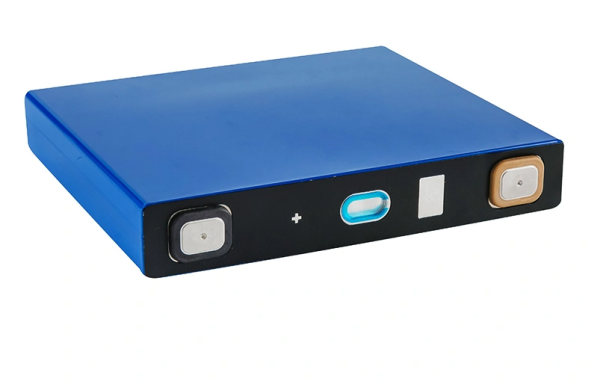As the core component of electric vehicles, the performance of power lithium battery affects many aspects, such as the speed and driving range of the whole car. Therefore, the research on battery technology has never stopped. Due to the influence of different materials on battery performance, which material is the most suitable power lithium battery for automobiles is the focus of hot discussion in the industry, and it is also a complex problem.
Huang Xuejie, an expert in the electric vehicle steering group of the National 863 Plan of the "Twelfth Five-Year Plan," is mainly engaged in researching secondary lithium batteries and related materials, processes, and equipment technologies. He believes that there are two critical technical routes for developing power lithium batteries in my country. They are for commercial vehicles and passenger vehicles. Commercial vehicles mainly choose lithium iron phosphate batteries, which are expected to exceed 160Wh/kg this year. Energy has higher requirements, so ternary material batteries are more favored.
However, such specific energy cannot meet people's requirements for a more extended driving range, so people still try different materials. It is reported that in addition to the application of lithium cobalt oxide in mobile phones, another lithium manganate, lithium iron phosphate, ternary materials, high nickel rich lithium, etc., all have certain advantages to varying degrees.
The NCA ternary material is equipped with an NCA battery because of its high monomer-specific energy and long storage life. However, the low cycle life of NCA and its poor safety performance has attracted attention. Although the specific point of the monomer is high, the particular energy of the group is significantly reduced.
More monomers must be required to ensure a longer driving mileage, so there will be certain hidden dangers in terms of safety.
Huang Xuejie compared the batteries of the materials mentioned above: although lithium cobalt oxide has good performance, the cost is high, it is only used in mobile phones; lithium manganate has a low price and is currently in high demand in the field of commercial vehicles, but its cost is relatively low. The energy is low, so low-speed cars and two-wheeled vehicles are more suitable.
Lithium iron phosphate has a long cycle life, strong safety, and stability from a comprehensive comparison. The cost gradually decreases, so it is still the current mainstream choice.
Regarding this point of view, Ai Xinping holds the same attitude. He firmly opposes the practice of blindly adding battery weight to increase the driving range because this will cause the vehicle's overall weight to rise, and the energy consumption will also increase. The increase is not conducive to market promotion.
The overall development direction of power lithium batteries must significantly increase the specific energy while meeting safety, long life, and cycle life indicators. Therefore, comprehensively comparing various materials of batteries, lithium-ion batteries are still the focus of the development of power lithium batteries.
Huang Xuejie proposed that the focus of continued research and development of lithium iron phosphate is not the improvement of the material itself but the design of the battery and the supporting harmful electrode material. In his view, after years of development, lithium iron phosphate has formed an annual output of more than 100,000 tons, and the material technology is very mature. Next, matching lithium iron phosphate with harmful electrode materials to better exert its excellent performance has become a problem to be solved by the industry.
Take two materials as an example, one that can be charged quickly at low temperatures and the other that can have a higher specific energy. Graphene materials can be fast-charged at low temperatures, and silicon carbon materials have higher specific power and must be nano-scale silicon.
It is not difficult to see that to improve the specific energy of lithium iron phosphate, it is necessary to solve the problems of low cyclic coulombic efficiency of negative silicon electrode and voltage decay of lithium-rich manganese base, and it is expected to develop advanced lithium-ion power lithium with specific energy exceeding 400Wh/kg.
From a long-term perspective, innovative lithium-ion batteries are more realistic and feasible than lithium-sulfur and lithium-air batteries. He proposed developing a high-capacity lithium-rich oxide cathode (≥350mAh/g) based on an anion charge compensation mechanism that can create a powerful lithium battery with specific energy greater than 500Wh/kg.
Ai Xinping emphasized that safety determines the prospect of high specific energy battery loading applications. The development of self-heating control technology and all-solid-state batteries is a feasible solution, so it is necessary to step up research. High-capacity electrodes are the basis for realizing the high specific energy of batteries. According to the polarization model, the development of gradient porosity electrodes is of great use and significance for developing high typical energy batteries.
At present, the specific energy of a new generation of lithium iron phosphate battery cells can reach 175Wh/kg, which can meet the requirements of 150Wh/kg for commercial vehicles after being grouped. With the continuous improvement of the technical level, it is worth looking forward to 180Wh/kg of lithium iron phosphate battery packs by 2020. There is still more room for development. In addition, lithium iron phosphate has a relatively strong industrial base in my country. More importantly, it also has application space in commercial and energy storage.

Next:Ternary rechargeable lithium battery has great potential
Previous:Lithium battery or lead-acid battery electric vehicle which is better
Contact Person: Miss. Elsa Liu
| WhatsApp : | +8617763274209 |
|---|---|
| Skype : | +8617763274209 |
| WeChat : | 17763274209 |
| Email : | Elsa@lifepo4-battery.com |